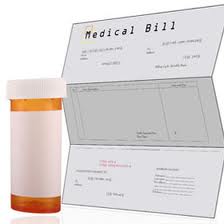 Smart business owners who are looking to save money will quickly be rushed into the world of HRA’s and HSA’s (Health Reimbursement Arrangements and Health Savings Accounts). The two can a bit confusing at first so I’d like to discuss the differences between the two.
Smart business owners who are looking to save money will quickly be rushed into the world of HRA’s and HSA’s (Health Reimbursement Arrangements and Health Savings Accounts). The two can a bit confusing at first so I’d like to discuss the differences between the two.
In this article, I’ll discuss what a HRA and an HSA are, how they are are used and how they can help save you or your business some premium dollars.
HRA Vs HSA
HRA Definition: An HRA is plan that is set up under IRS code section 105H and is established for the purpose of reimubursing employees for qualified medical expenses.
- HRA’s are employer funded only
- Money can be rolled over year to year if the employer chooses
- Funds deposited and dispursed are tax deductible to the business and tax free for the employee
- No limit on how much can be reimbursed
- Any qualified medical expense can be reimbursed
HSA Definition: An HSA is often used in two different contexts. The first is the actual savings account and the second is referring to the health plan you are to be covered under.
- HSA Savings Account – this an account that can be funded by an employer or employee for the purpose of paying for medical expenses.
- Limits on how much money can be put into the account each year.
- Money rolls over year to year.
- Funds are completely employee owned
- Can be used to pay for any qualified medical expense on a tax free basis
- Must be covered by a HSA Qualified Health plan to make deposits into the savings account.
- You can read more about HSA Rules for 2012 here.
HRA VS HSA In the real world
When I am working with new and renewing groups, using one of these great strategies is usually first in my list of options. Each one has their pros and cons so lets look at how each one would work for a company.
ACME LLC – has a 100% HMO where the employer pays 100% of the premium and they just a got another 20% increase. They are comparing an HRA vs an HSA to save money. They have decided on purchasing a HSA qualified health plan but now need to pick the funding arrangement.
The company will be saving about 40% in premiums using the high deductible health plan and don’t want employees to have any large medical bills.
Option 1: HRA – The employer has decided to refund employees their full medical deductible. As employees use the plan, the employer will reimburse them dollar for dollar up to the set limit. Any unused money is retained by the employer
Option 2: HSA – The employer does not want to bother with claims and wants to give the employees money to pay for their claims. The employer makes monthly deposits into each employees Health Savings Account until he has paid an amount equal to their medical deductible.
Under Option 1, the employer has the chance for much greater savings but there is a little more work involved in reimburseing everyone. Option 2 is a bit easier and more flexible, but once the money is given to the employee, it is gone. If an employee quits, they keep the money.
If you own a business and are weighing HRA vs an HSA, please call me for a health insurance quote or to hear how these strategies can help with your bottom line.



